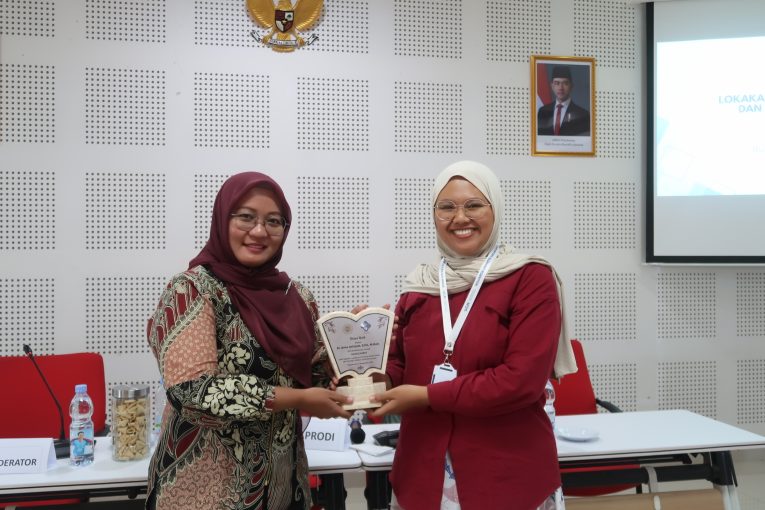
The Linguistics Master’s Program, Faculty of Cultural Sciences, Universitas Gadjah Mada, held an insightful workshop on writing and publishing articles in reputable journals on September 22, 2025. In this meeting, Dr. Arina Isti’anah, S.Pd., M.Hum., introduced the mechanisms of journal publication and manuscript preparation, as well as delivering best practices for publishing articles in accredited, highly-regarded journals, such as SINTA and Scopus. The aspiring lecturer has successfully published seven manuscripts in Scopus-indexed journals in recent years, a feat that inspires the students to enhance their writing, collaboration, and scholarly contribution.
In manuscript preparation, Dr. Arina Isti’anah, S.Pd., M.Hum. emphasizes the importance of novelty in theory and methodology, as well as presenting the move structure to improve the clarity of an article. She added that linguistics also grows and adapts to current issues, thus contributing to a world that constantly grapples with ever-evolving topics, such as climate and environmental issues. She further gives an instance that the development of corpus-assisted methodology and critical ecological approaches is a fresh nuance in linguistic studies, valuable for addressing the current Sustainable Development Goals (SDGs).

The session also features a series of discussions focused on manuscripts submitted by student volunteers, with a critical review of their clarity, cohesion, and grammatical issues. Each work is examined using the checklist derived from the provided parameters. For example, the writer should consider establishing a territory, establishing a niche, and further occupying the niche in the introduction. It is also important to contextualize the research and provide a comprehensive methodology by thoroughly describing the study and building credibility.
When it comes to challenges in international publication, Dr. Arina Isti’anah, S.Pd., M.Hum., constantly invites student collaborations and the involvement of local data with a global perspective. It inspires linguistic students to try their luck at publishing in reputable journals and to perceive rejections as a free valuable feedback. It is valuable to navigate their academic journey better, especially in redefining their focus, novelty, and impact factors. This activity finally fosters an understanding of writing ethics, reference management, and publication procedures that form an academic culture that encourages students to contribute to the field of linguistics.
